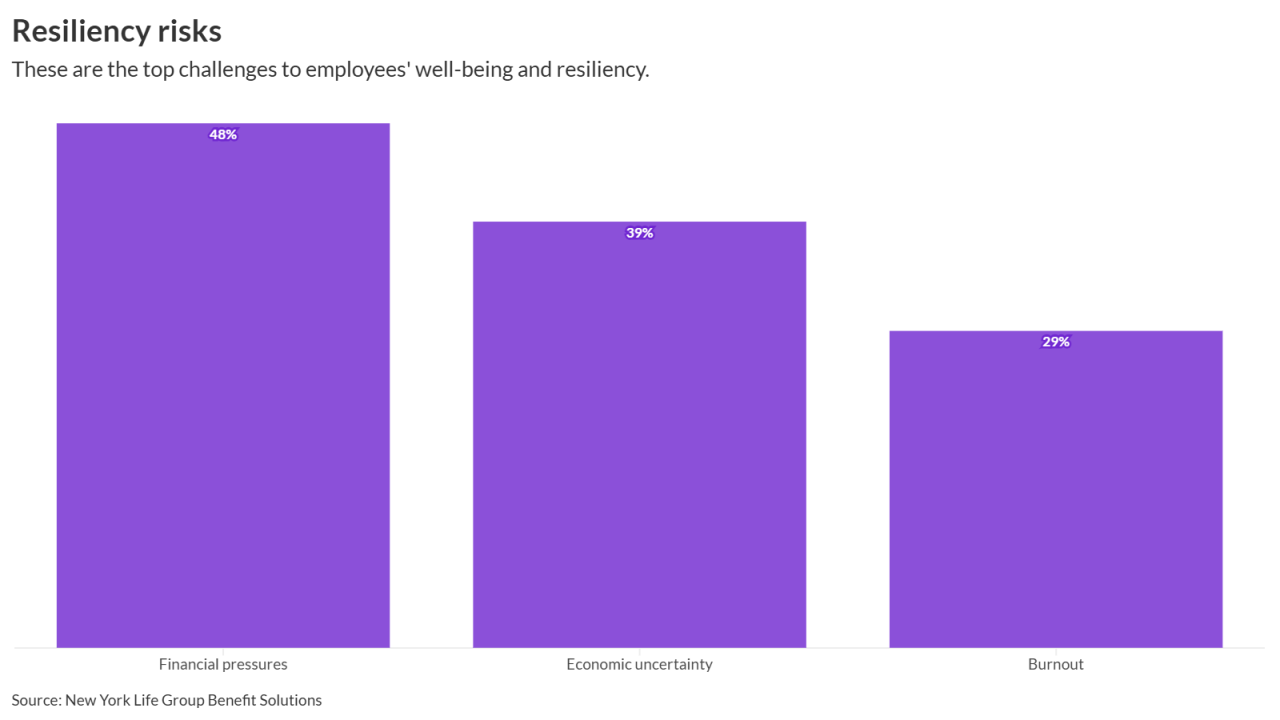ORLANDO — The nation’s $1.5 trillion student loan debt crisis is the one problem most everyone agrees is a problem, but almost no employers are doing anything about it — yet.
Of about 100 HR and benefits professionals attending a session at the WorldatWork Total Rewards Conference this week, the vast majority said that they are extremely concerned about the growing U.S. student loan debt load, which now touches more than 44 million debtholders.
But the majority said they aren’t doing anything in their workplace to address the issue. Eighty percent of those professionals said they do not offer direct assistance programs to employees. About 15% said they offer a platform that helps employees refinance their student loans, while just 3% said they offer direct contributions toward employees’ loan repayment.
The conference poll speaks to the state of student debt benefits in general: While many industry insiders point to the growing appeal of student loan benefits, just 4% of employers currently offer a student debt repayment program, according to the Society for Human Resource Management. Many are still debating whether the popular benefit is right for them or too much of a financial burden.

Hesitancy is often caused by concerns over finances, as well as being fair to the rest of the workforce that may not have student debt or have already paid off their loans, Peter DeBellis, total rewards research leader at Deloitte, said Tuesday. He warned benefits and HR managers to thoughtfully consider the implications of adding the benefit before acting.
“A program like this is a personal decision for an organization. It depends on your demographics, how your employees are feeling, what your industry is, what your financial well-being profile is,” he said. “It’s not something to do lightly. It can have some serious financial ramifications, so it’s something to step in thoughtfully if you are thinking about going down this road.”
Susan French, senior manager of benefits and wellness at
Still, the number of employers offering student loan benefits is expected to grow with time, especially as employees clamor for the benefit. In fact, more than half of the professionals in the session said although they aren’t currently offering a benefit to help employees with student debt, they are considering adding one in the future.
“Employees are looking for help on this,” DeBellis said. “They are looking to the federal government, the state government and, increasingly, now to their employers.”
Employers including
See also:
DeBellis cited Deloitte research that found high-performing employers are more than two times more likely to offer some sort of student loan benefit. Other research finds that employees are more loyal, and will stay longer, if their employer offers such a benefit.
Calling it a “key differentiator,” DeBellis told benefits managers not to be afraid to evolve or adapt a student debt benefit after they roll it out. To get the most value out of it, benefits managers should pay close attention to how the benefit is faring among their workers — and also make sure to communicate it.
“If you do deploy it, market the heck out of it,” he said. “It’s great; it’s a differentiating benefit that not a lot of employers are offering. Tell people about it; get some bang for your buck on it.”




